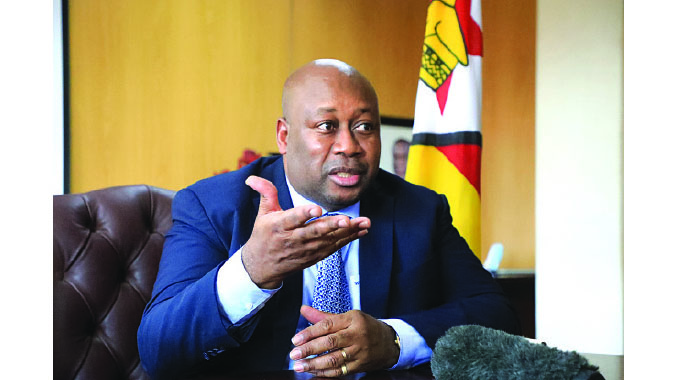President off to Equatorial Guinea, Angola

Hebert Zharare
Business Editor
President Mnangagwa last night left the country for Equatorial Guinea to join other Heads of State and Government attending the official inauguration of Cde Teodoro Obiang Nguema Mbasogo who swept to victory during last month’s harmonised plebiscite.
After attending Cde Mbasogo’s inauguration, President Mnangangwa will tomorrow travel to Luanda, Angola, to attend the Organisation of African Pacific Caribbean (OACP) Summit, whose focus among other things is to spearhead development among member states.
President Mbasogo, who represented the ruling Democratic Party of Equatorial Guinea, garnered 405 910 votes that translate to 97 percent of the total votes cast.
He whitewashed rivals Mr Andres Esono Ondo of Convergence for Social Democracy who managed 2.31 percent of the total votes and Mr Buenaventura Monsuy Asumu of Party for Social Democratic Coalition who managed 0.68 percent.
The harmonised elections were held to elect the president and members of parliament, alongside local government elections. Originally the parliamentary elections had been scheduled for November 2022 and presidential elections for 2023. However, in September 2022 the Equatorial Guinea parliament approved a proposal to merge the elections.
Zimbabwe has good relations with Equatorial Guinea and President Mnangagwa was invited to attend the inauguration, which is part of a continuation of engagement and re-engagement with African states.
Africa has been with Zimbabwe in terms of the agenda for the removal of the illegal sanctions and so whenever there is an event involving an African state, Zimbabwe will make sure that it is represented at the highest level.
Foreign Affairs and International Trade Permanent Secretary, Ambassador James Manzou said: “Today, December 7, the President will leave for Equatorial Guinea to attend the inauguration ceremony of the President of Equatorial Guinea (Teodoro Obiang Nguema Mbasogo). The inauguration is going to be tomorrow, December 8.
“After the inauguration the President will leave for Angola where he will be attending the 10th Summit of the Organisation of African Caribbean Pacific (OACP). It is a Heads of State Summit, which is from December 9 t0 10. The theme of the summit is “Three Continents, Three Occasions and One Destiny”.
There will be meetings of ministers from the bloc who are already in Luanda.
Said another source close to the developments: “We are engaging the European Union as a bloc and we meet regularly to compare notes and discuss how best we can pursue our interests in our interaction with the European Union. There are financial issues that we expect to deal with because of late the organisation has been having some challenges.”
The 79 OACP members have a combined population of 1.188 billion, a Gross Domestic Product of US$2.24 trillion, according to the organisation’s latest statistics of 2022. The size of the organisation’s population and the combined GDP makes it a formidable force in global economics.
The summits of the OACP states are held every two years in a member state. They give the leaders of the 79-member organisation the opportunity to review major developments of interest and concerns to its members on the international scene in general, and in the OACP states in particular.
Angola will take up the chairmanship of the OACP during the summit.
The first Summit of OACP Heads of State and Government was held in Libreville, Gabon in November 1997, during which the leaders committed themselves to meet regularly. Since then the OACP countries have held their summit every two years.
The OACP is an organisation created by the Georgetown Agreement of 1975. It is composed of African, Caribbean and Pacific States signatories to the Georgetown Agreement or the Partnership Agreement between the OACP and the European Union, officially called the ACP-EC Partnership Agreement or the Cotonou Agreement.
The OACP Group consists of 79 Member-States, all of them, save Cuba, signatories to the Cotonou Agreement which govern their relations with the European Union: 48 countries from Sub-Saharan Africa, 16 from the Caribbean and 15 from the Pacific.
At formation, the purpose of the organisation included among others: sustainable development of its member states and their gradual integration into the global economy, which entails making poverty reduction a matter of priority and establishing a new, fairer, and more equitable world order.
It also includes coordination of the activities of the OACP Group in the framework of the implementation of OACP-EC Partnership Agreements, consolidation of unity and solidarity among ACP states, as well as understanding among their peoples and establishment and consolidation of peace and stability in a free and democratic society.
The group was originally created with the aim of coordinating cooperation between its members and the European Union. Its main objective was to negotiate and implement, together, cooperation agreements with the European Community.
Over the years, the group extended its range of activities. Since then, cooperation among its members has gone beyond development cooperation with the European Union and covers a variety of fields spanning trade, economics, politics and culture, in diverse international fora such as the World Trade Organisation.
Among some of the founding objectives of the ACP as defined by the Georgetown Agreement, are to: promote a new, fairer and more equitable world order, promote and strengthen solidarity among ACP states, and understanding between ACP peoples and governments.
Other objectives are to contribute to the development of important and close economic, social and cultural relations among developing countries and develop cooperation among ACP states in the areas of trade, science and technology, industry, transport, education, training and research, information and communication, the environment, demography and human resources.
The group also aims to contribute to the promotion of regional, inter-regional, and effective intra-ACP cooperation among ACP states, generally among developing countries, and strengthen the regional organisations of which they are members among others.











Comments